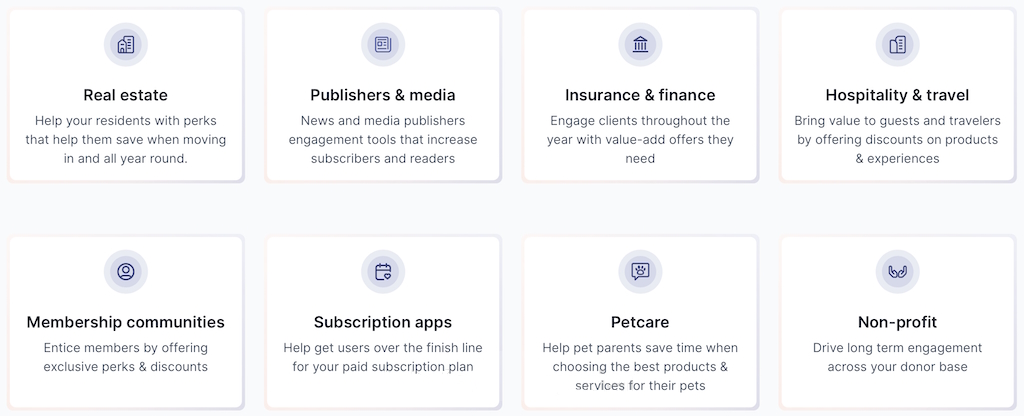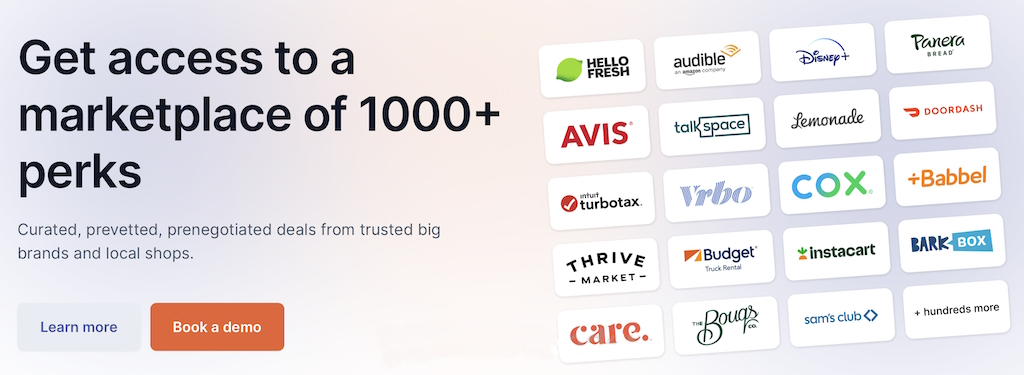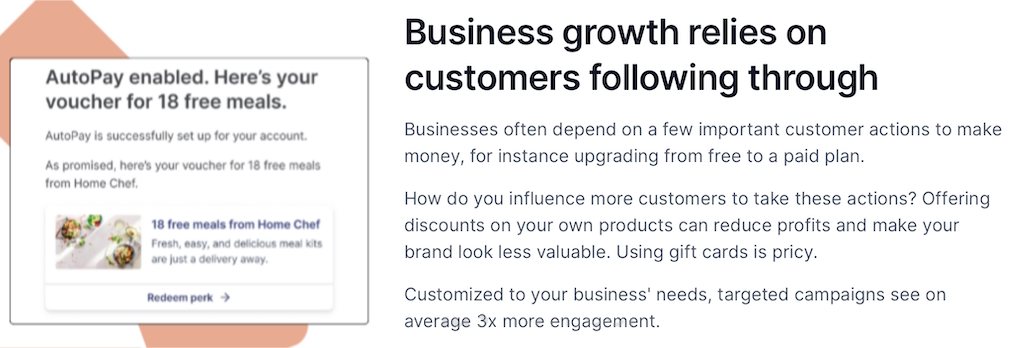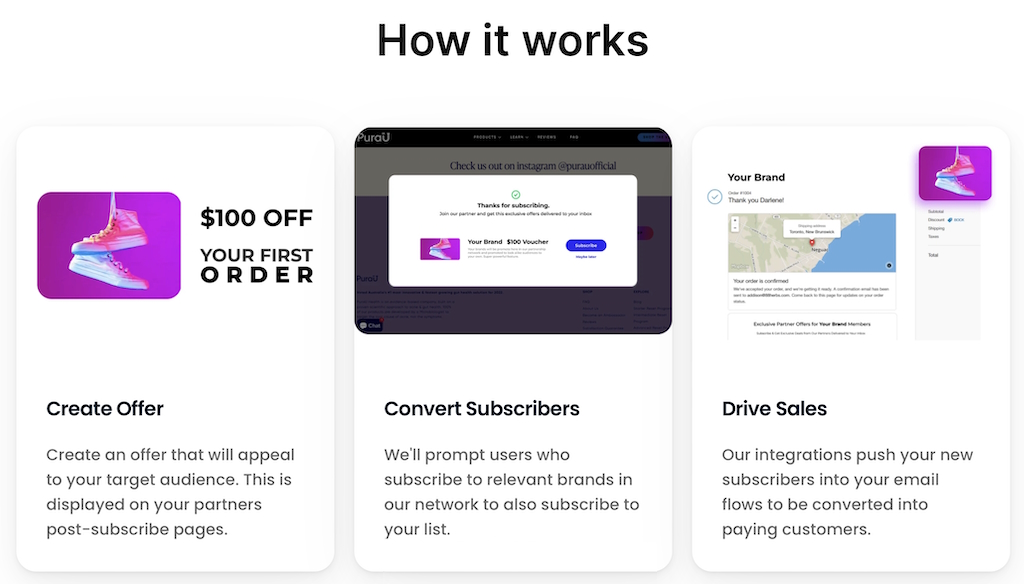 About
About
With Paylode, business owners and product developers can give away perks and bonuses to their users to encourage them to perform targeted actions, engage with the product, and remain loyal users and customers. The service would work for residential property owners to incentivize tenants to pay on time, for online publications, communities, and apps to get users to sign up and stay on paid subscriptions, and for banks, insurance companies, hotels, and travel agencies to get people to buy their services, and so on.
This can be done without a single line of code, so it’s suitable for businesses without technological expertise or developers who don’t want to bother with building their loyalty platform.

The trick is that you don’t have to invent these perks and bonuses yourself or spend your resources on them. The Paylode platform has a ready-made marketplace of such perks and rewards from over 1,000 manufacturers and sellers who want to promote their products and services to users and buyers of other companies. You can give your users and buyers access to the entire marketplace or create your own collections of perks and bonuses that are most interesting to your target audience. You can even make it so users automatically see perks and bonuses from companies nearby.

To start offering users these perks and bonuses, you don’t need to program anything—you just need to insert a call to the Paylode widget in the right place. The widget will then show the necessary selection of bonuses with the offerer specified.
The platform has just come out of beta testing, but during this time, the startup has attracted more than 50 first-client companies. I first noticed this startup in the spring of 2022, when it was still on its way to building today’s version of the platform.

On that occasion, Payload has now raised a 3 million dollar investment, bringing the total investment in the project to 5.5 million.

What’s interesting
The user journey from casual visitor to a buyer, from buyer to loyal customer, from loyal customer to generous customer is not a smooth, gradual movement but a set of individual jumps. First, you must try hard to get a person to buy something for the first time – and then it gets easier. Getting a user to connect automatic payment first takes a lot of effort, and then it will be easier. Getting users to upgrade first takes a lot of effort, but it will be easier, etc.

For such jumps to happen at the right moment, a “push” is required. For example, a bonus that can be promised to him at that moment.

But these “little things” significantly impact the business’s growth as a whole. The essence and value of Paylode is that it helps companies to get through these critical moments and at someone else’s expense.
Let’s look at examples of bonus offers on Paylode. We see offers like “get 20% off from another company for registering on our service”, “get three discounts of your choice from other brands if you finally place an order for the items lying in your cart on our site,” and “get 18 free meals from such and such restaurant by linking your card to our service” and so on.

This differs from the traditional scheme of giving away bonus – when the owner incurs a particular loss by offering something for free or at a discount. For example, when the owner of a subscription service provides an unsubscribing user a discount on their subscription if they don’t unsubscribe. Or a store owner offers free shipping, which he will pay for himself if the customer places an order on a shopping cart abandoned on his site. Or a hotel owner will offer a free tour, which he must pay for with an affiliate if a visitor immediately books a room at his hotel.
In the case of Paylode, the business owner pays for the benefits with other people’s losses – freebies or discounts given to his users and customers by completely foreign businesses.

However, for these outsider businesses, these are marketing costs, with the help of which they reach a new audience. And not just any audience, but one that has already paid someone for something , so it’s a convincing win-win.
Without spending any resources searching for possible partners for such benefits, discussing conditions, implementing mechanisms to control the effectiveness of the partnership, terminating the partnership in case of ineffectiveness, searching for another partner, and so on, Payload called its platform “partnership as a service”.
The startup Partnar is telling a similar story. Now, it has evolved its platform, turning it into a tool for cross-subscribing to manufacturer and merchant email newsletters. This startup has raised 400,000 Australian dollars in investment.

The startup Reinvent is a similar platform for cross-marketing D2C brands, which I wrote about last summer. However, it has only raised $150,000 so far when it exited the Antler accelerator.
Where to go
Conventional advertising is becoming increasingly expensive, and its effectiveness is decreasing. This forces everyone to look for new marketing channels, which would be cheaper but provide acceptable efficiency. Cross-marketing is an excellent way to open these channels. There must be many such cross-marketing partners to get meaningful results because a) each channel is not highly scalable, and b) we need to know which one will work well. But the problem is that it takes too much time and effort to set up each such partnership – which often doesn’t even pay for those costs.

So, there’s no way around it without a platform through which this could be quickly done. It’s like advertising through micro-influencers—it is effective, but negotiating with each and controlling their effectiveness will be more expensive. That’s why platforms for connecting advertisers with micro-influencers like Primetag , Stack Influence , and Hummingbirds are now appearing and raising investments.
The direction of possible movement is to create cross-marketing platforms that allow you to reach new audiences of other people’s users and customers in a simple, cheap, and effective way.

The potential audience for such platforms is broad. It includes sellers, manufacturers, community and mailing list creators, developers of cloud services and applications, service providers, and many others.
At the same time, such platforms can be created as universal “for everyone” or niche platforms—where, for example, only D2C manufacturers, mobile app developers, creators of paid newsletters, or someone else from one or related spheres are engaged in cross-marketing.
About the company
Website: paylode.com
Last round: $3M, 2/28/2024
Total investment: $5.5M, rounds: 3